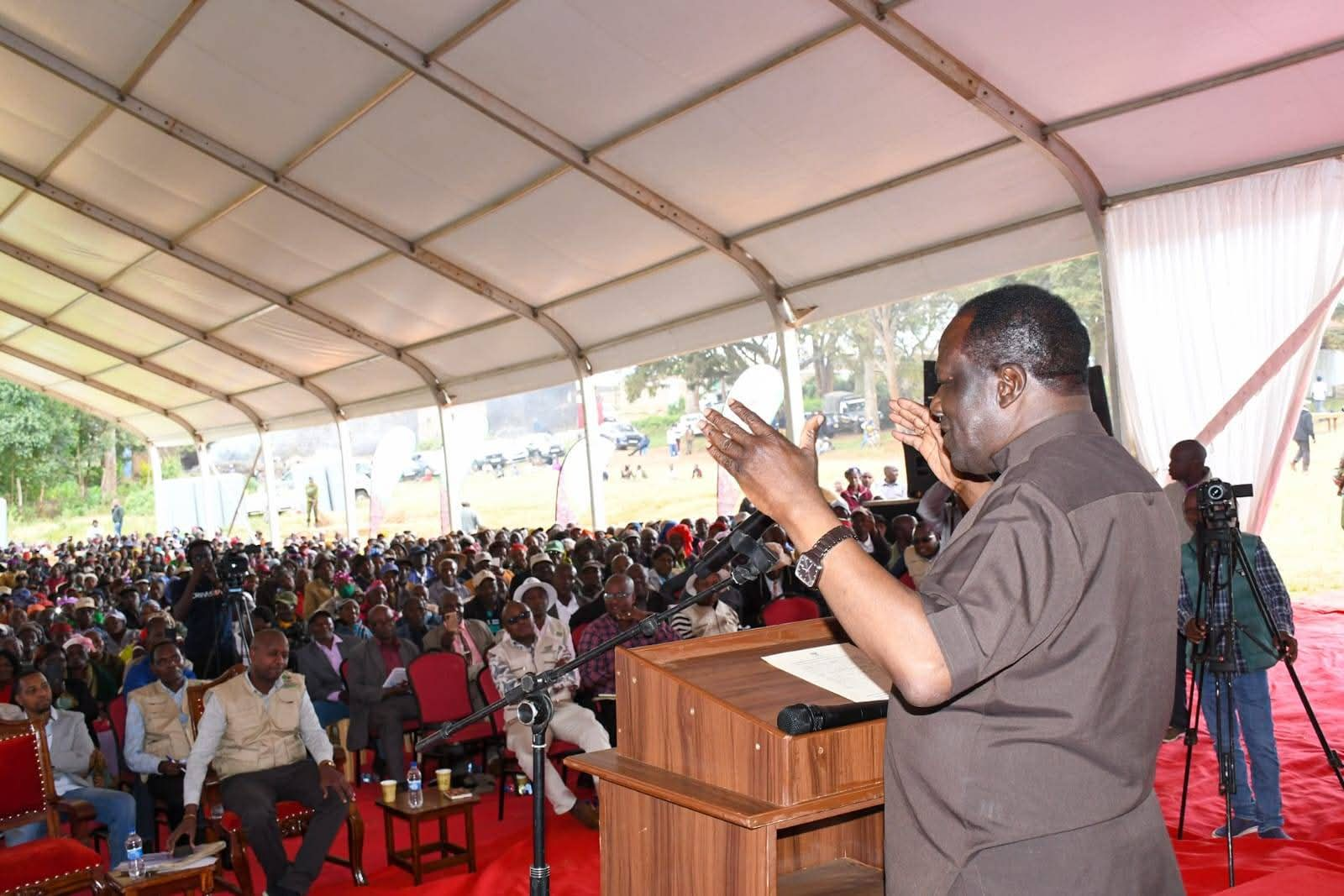 Cabinet Secretary for Cooperatives and Micro, Small, and Medium Enterprises (MSMEs) Development, Wycliffe Oparanya. Photo Andrew Mbuva.
Cabinet Secretary for Cooperatives and Micro, Small, and Medium Enterprises (MSMEs) Development, Wycliffe Oparanya. Photo Andrew Mbuva.
By Andrew Mbuva
The Cabinet Secretary for Cooperatives and Micro, Small, and Medium Enterprises (MSMEs) Development, Wycliffe Oparanya, has reiterated the government’s unwavering commitment to revitalizing Kenya’s coffee sector.
Speaking during a farmers’ sensitisation forum at Kikima KIE Grounds in Makueni County, Oparanya emphasized the government's focus on expanding the industry’s footprint in the international market and boosting farmers’ incomes.
“The president has committed to increasing our current production of 50,000 metric tonnes to over 150,000 metric tonnes by the year 2028–2029. This is a game-changer. Achieving this will drive wealth creation and reduce poverty,” said Oparanya.
He noted that the government is fully supporting coffee farmers through the provision of certified seedlings, improved market access, and the revitalisation of the value chain via stronger cooperative societies.
“We are not just bringing coffee back — we are making it profitable for every smallholder farmer,” he affirmed.
Oparanya also pointed out that reforms implemented over the last decade, in collaboration with value chain stakeholders, are already yielding results, especially with the recent increase in coffee prices.
Echoing his sentiments, the Permanent Secretary for Cooperatives, Patrick Kiburi Kilemi, stressed the importance of sustainable farming practices as a foundation for the sector’s long-term success.
“This is not about short-term gains,” said Kilemi. “We are laying the groundwork for long-term, climate-smart farming that guarantees higher yields, quality beans, and better prices.”
On her part, Makueni’s County Executive Committee Member (CECM) for Agriculture and Cooperative Development, Joyce Mutua, pledged full support from the county government.
“Our farmers are ready, and so are we,” said Mutua. “We are committed to this partnership that not only aims to revive coffee farming in Makueni but also to transform livelihoods.”
Kenya’s coffee industry, first introduced in the 1890s, enjoyed its peak in the 1970s and 1980s before experiencing a gradual decline due to market instability, policy inconsistencies, and environmental challenges.
The current revival efforts aim to restore its former glory and reposition it as a key economic pillar.